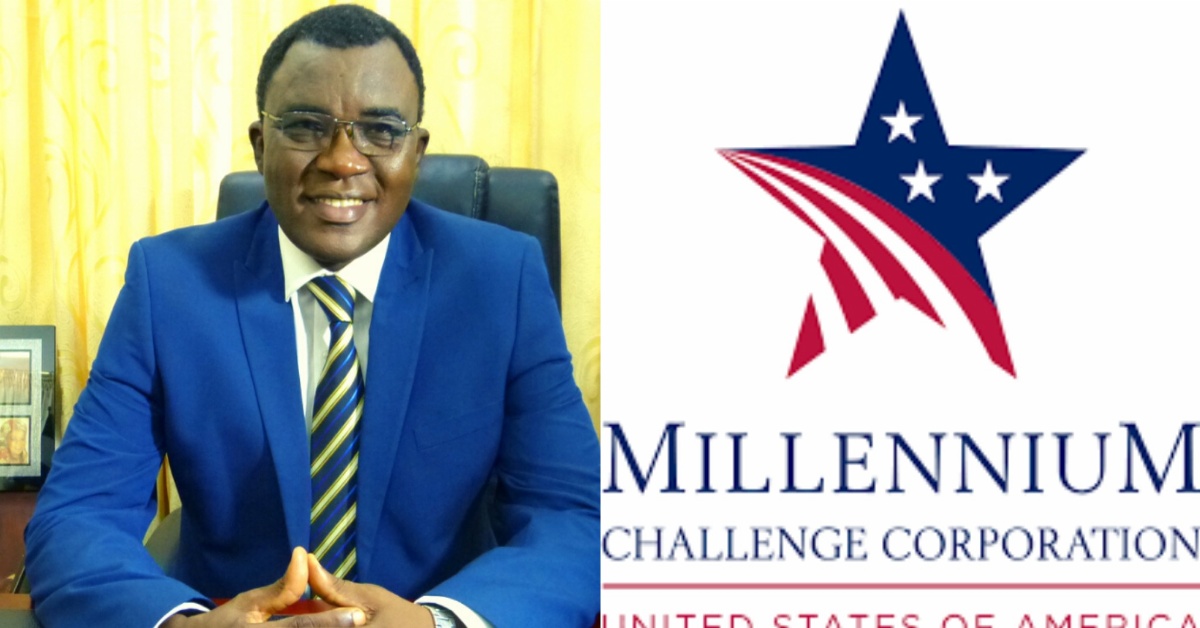Dr. Richard Konteh, a prominent figure and former flag bearer candidate of the opposition All People’s Congress (APC) party in Sierra Leone, has voiced his concerns regarding the recent award of the Millennium Challenge Corporation (MCC) Compact grant to the country.
In a statement released by his team, Dr. Konteh conveyed a sense of mixed feelings about the announcement, highlighting both support for the nation’s development and dissatisfaction with the underlying circumstances.
Dr. Konteh emphasized that, despite his team’s unwavering commitment to the country’s progress and their recognition of the potential benefits of the MCC Compact award, there is a troubling aspect to the situation that cannot be overlooked. He expressed his discontent with what he perceives as an attempt to reward bad behavior, reflecting a broader concern about the current political and social climate in Sierra Leone.
One of the primary issues raised by Dr. Konteh is the incomplete implementation of the Agreement for National Unity. This agreement, intended to foster national cohesion and address critical governance issues, remains hampered by a range of bottlenecks. Dr. Konteh attributed much of the delay and lack of progress to the intransigence of the Electoral Commission for Sierra Leone (ECSL) and the absence of consensus within the Tripartite Committee, which is tasked with addressing the contentious issues at the heart of the agreement. The inability of the committee to reach a common ground has stalled the successful completion of its report, further exacerbating the situation.
Dr. Konteh’s statement also touched on the broader implications for democracy in Sierra Leone. He expressed a deep concern that the current state of affairs poses a significant threat to the democratic process. According to Dr. Konteh, the lack of accountability for actions that undermine democracy and elections in Sierra Leone is a serious issue that needs urgent attention. He warned that the continued disregard for democratic principles and the failure to hold those responsible accountable would ultimately make a mockery of the electoral process in the country.
The MCC Compact grant, while a significant financial boost aimed at enhancing the nation’s development prospects, has thus become a focal point of contention. Dr. Konteh’s remarks underscore the delicate balance between welcoming international support and addressing internal challenges that compromise the integrity of governance and democratic practices.
As Sierra Leone navigates this complex landscape, the concerns raised by Dr. Konteh highlight the necessity for transparent and accountable leadership. The implementation of the Agreement for National Unity, the resolution of bottlenecks within the Tripartite Committee, and the reinforcement of democratic principles are critical steps that must be taken to ensure that the country can fully benefit from international aid while maintaining its democratic integrity.
Dr. Konteh’s statement serves as a call to action for all stakeholders in Sierra Leone to address these pressing issues and work collaboratively towards a more unified and democratic future.












We said Mr Konteh, democracy need to prevail for the betterment of Sierra Leone if not another leader will come and do worse…
Your peace to words this per ticular MCC would have been better still, so you’re not true a patriot of this Nation – Sierra Leone,,,
APC, unar go die oh!
Dr Richard Conteh is an unpatriotic liar.
Educated fool.
Allow democracy to prevail
This is a complete 💯% of dishonesty and insincerity to one’s homeland by Dr R. Conteh. Is it not a shame and heartless act to say such words? The MCC is not a APC property and should not view it as it has any string attached to them. The very Tripartite has exposed your insincerity and lack of self-respect.
Richard Konteh ! Did you think of this during your terms in office? You are very unpatriotic and naive for failing to realize the fund is provided towards the development of Sierra Leone.You woefully based your abysmal opinion on your political affiliation and trying to get into further destruction of the country’s economy and infrastructural developments.
So APC and Mr Konteh are doing deliberate disturbance to this country to stop good coming to us, how can you hate the progress of the same country you living in?
So all this what APC is doing are to destroy the country image to the international word.
Hmmmmm now we know why APC is doing all these to our country.
I believe as good citizen is to monitor the disbursement of this fund and what it being use for
Not to be jealous and angry because money is being given to the country.
We now know it not about SLPP or Bio but you people really hate this country.
But God will hold you all responsible for bad you doing in this nation
To be poor and proud is foolish. Not so long ago, we were quick to dismiss the MCC as it encroached on our sovereignty. Now we are eager to embrace it. What’s changed? Apparently the requirement to be transparent about the election results has been relaxed. Once nar we dae nar power…